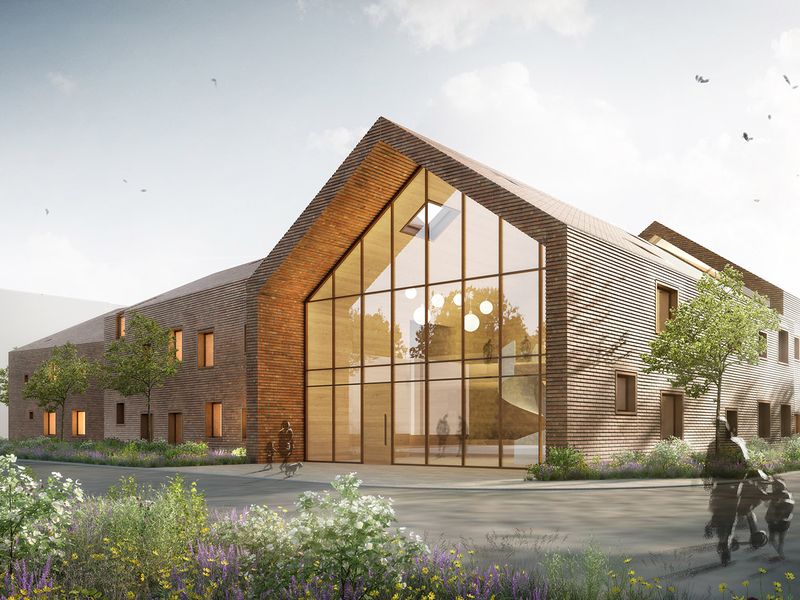Interpersonal violence is also a highly relevant topic in Germany. Domestic violence is a particularly serious form of violence. The health care system is one of the most important points of contact for victims. The holistic care of both child and adult victims represents a major challenge. Against this background, the University Hospital of Düsseldorf is planning to build a center for the care of child and adult victims of violence: The "Trube-Becker House". The project is now being implemented.
The aim is to sensitively combine the functions currently housed in different buildings - the Social Pediatric Center (SPZ), the Legal Medicine Outpatient Clinic for Victims of Violence and the Childhood House Düsseldorf - in one building. In addition, the building will provide space for scientists conducting research on the topic of interpersonal violence and child protection in medicine. The HPP design envisions a building composition of four closely spaced houses that are slightly offset from each other to create a playful yet striking appearance. The classical form of the residential house is used as a guiding principle for a protective building in which the users feel comfortable and at home. Priority is given to the care of children affected by violence and sexual abuse in the sustainable wooden hybrid building. Accordingly, playful shapes, natural materials and soft colors are intended to create a pleasant and child-friendly atmosphere. The entire site around the building will be intensively landscaped, creating a cohesive green island that further enhances the well-being of visitors and users. In line with the C2C principle, recyclability, use of resources, waste generation, emissions and energy consumption are precisely examined as early as the design phase, with the aim of creating a climate-positive house.

